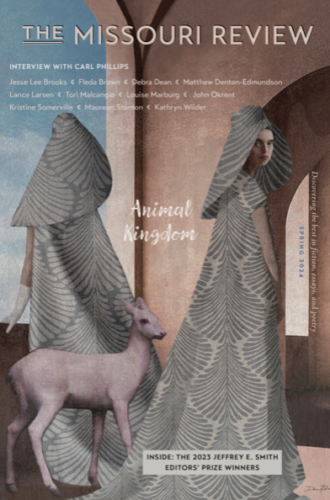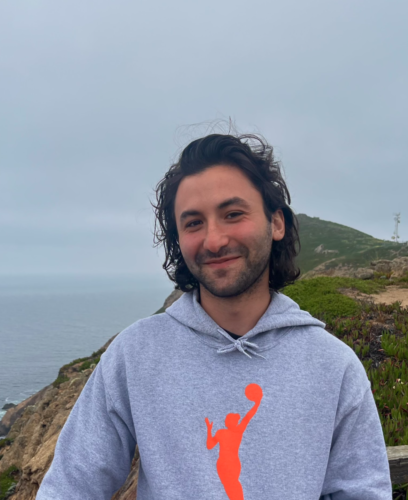My friend in Providence tells a joke I think about often: there are four seasons in Rhode Island—Winter, Winter, Summer, Construction. When I texted him asking for the order, he checked with his father and got back to me with an amendment. “It’s Winter, Winter, Construction, Summer. Because the Rhode Island state flower that blooms in springtime is the ‘orange traffic cone.’”
I’m struggling to begin writing about Roadwork, in large part because I struggled with writing it.
Roadwork was the first poem I wrote after moving the thousand-odd miles from Providence to Iowa City, where weeks of troubled sleep, maladjustment to the humidity, and too many writers wherever I looked only fed the haze. Stumped, one morning I went with another poet to try writing in a booth at a restaurant—something, for the record, I’d never done before and have never done since.
The first line came from a poem I abandoned years prior (“You hold out your hand again for more world”). All this time, the vow held me and asked me to return to it with answers; “you” had become “I,” and “again” and “more” implied I’d been here before. What was I asking myself for? The rest of the poem? Myself? I’d hoped to depict an answer in passing material. But the wish itself was the world.
I wanted to write a poem that sustained that wish, one that held the hope of temporary things to become more permanent. At the line “Sweep away the ecclesiastical dust in the street,” I turned the laptop over to the poet I came with, and she said only one word, and smiled. “More.”
Temporary things don’t want to be permanent—at the end of the day, I like to think they fall in love with their own uncertainty. The purple vinyl seats melting into the Iowan wall, the orange traffic cones stationed at an intersection in Rhode Island, blossoming. “The yellow horses spilling from their sidewalk stalls, sidestepping fruit vendors in an inharmonious derby…”
A few days after I wrote Roadwork, the poet I’d gone to the restaurant with called me in the middle of the night asking to stay on my couch (surreally, the ceiling in her living room collapsed). Not weeks later, under the auspices of poor construction, we fell in love. “I wish I could commission one of the great sand painters to tell you about it.”
Ultimately I want poems to get in and out as quickly as possible. No wasted movement. Yet I know that sometimes the quickest way from Point A to Point B isn’t a really straight line. Even our own thoughts take the arduous journey across membranes, synapses, glands, and cells before they become actionable. I needed to accommodate for the debris in the street, that “ambient blitz.” To learn how to move again—not through the construction, but with it.




